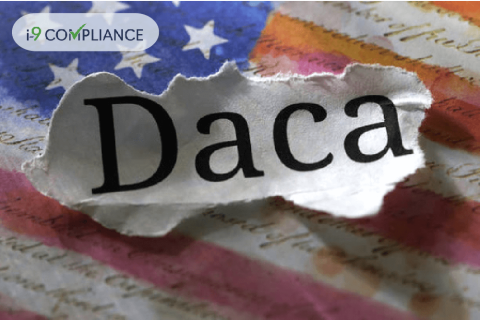Department of Homeland Security Releases Final Version of DACA Rule

September 26, 2022
The Department of Homeland Security (DHS) has introduced a final rule codifying the Deferred Action for Childhood Arrivals (DACA) program. This new rule, which will soon be available on the Federal Register, essentially codifies the Department’s existing policies and will become effective on October 31st, 2022.
The final rule published in the Federal Register on August 31st, 2022. It will primarily maintain the program’s current form, as introduced in a memo in 2012. Under these regulations, an individual is eligible for the program if they arrive in the U.S. before their 16th birthday. They must also live in the country continuously since January 15th, 2007 but not be 31 years of age since June 15th, 2012. Furthermore, they cannot have convictions for a felony, serious misdemeanor, or three or more minor misdemeanors. Finally, they must not have another legal status, be in high school, have received a high school diploma or GED, or honorably discharged from the Coast Guard or U.S. Armed Forces.
When the DHS introduced a proposed rule for public comments in September 2021, it received more than 16,000. Many comments urged the Department to introduce more significant changes. For example, suggestions included moving the date of entry requirement forward so younger individuals could apply. However, most policies outlined in the 2021 version remained in place.
One significant departure from the 2021 version is removing the former rules plan to separate: Form I-765. This form is an application for Employment Authorization Documents (EAD) from the primary application for DACA, Form I-821D. In its original 2012 form, the DACA program required simultaneous filing for these two documents. By removing the link between these two applications, many commenters feared that DACA recipients would risk losing their EADs due to the USCIS’s backlog in processing these applications.
The final version of the rule also clarifies what criminal convictions will not disqualify a recipient from participating in the DACA program and when to expect terminated EADs. For example, expunged convictions, juvenile delinquency adjudication, and immigration-related offenses under state law do not necessarily disqualify someone from participating in the program. In addition, EADs for DACA participants may not terminate when removal proceedings begin, only when the DACA status faces termination.
This final rule will officially codify the DACA program; however, it may have little effect on its eventual fate. Federal courts continue to litigate its status. The DHS’s rule is unlikely to impact the eventual outcome significantly.
Stay updated on all the new rules of compliance with Pre-employ’s free news resources on FCRA, EEOC, and more Contact a Sales Rep today for more information.